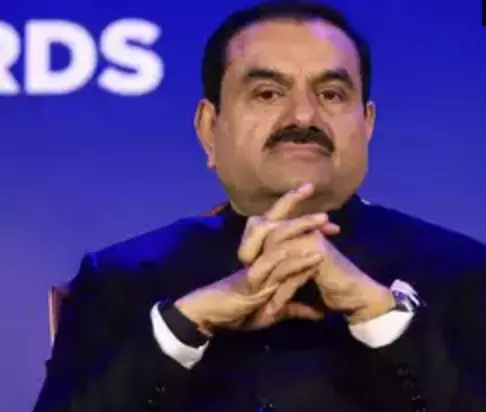Trump halts enforcement of foreign bribery law, offering potential relief to Adani
Trump halts enforcement of foreign bribery law, offering potential relief to Adani

In a major decision, US President Donald Trump has signed an executive order to temporarily pause the enforcement of the Foreign Corrupt Practices Act (FCPA), a 1977 law that prohibits companies from bribing foreign officials to secure business deals. This move directly impacts an ongoing bribery investigation involving the Adani Group.
What This Means for Adani
The FCPA had been a key legal tool used by the US Department of Justice (DoJ) to pursue corruption cases, including last year’s charges against Indian billionaire Gautam Adani and his nephew, Sagar Adani. The DoJ, under the Biden administration, had accused the Adani Group of paying over $250 million (approximately ₹2,100 crore) in bribes to Indian officials in exchange for favorable solar power contracts. The prosecution alleged that this information was hidden from US banks and investors who had funded Adani’s projects.
With Trump’s executive order in place, the US Attorney General, Pam Bondi, has been directed to review the FCPA enforcement guidelines over a 180-day period. During this time, new FCPA investigations will be halted unless specifically approved by the Attorney General, and existing cases will be reviewed to determine whether they should continue.
Political Reactions and Concerns
While the move is seen as a potential relief for the Adani Group, the final outcome depends on the review's findings. Some US Congress members have raised concerns over the original decision to pursue Adani, questioning whether it was in America’s best interest.
A group of six US Congressmen—Lance Gooden, Pat Fallon, Mike Haridopolos, Brandon Gill, William R. Timmons, and Brian Babin—sent a letter to Attorney General Bondi criticizing the Biden administration’s handling of the case. They argued that pursuing charges against an Indian company, with allegations based on actions taken entirely within India, could harm US-India relations. The lawmakers questioned why the case was not deferred to Indian authorities instead.
What Happens Next?
Trump’s order mandates a thorough review of all FCPA-related investigations, with potential changes in enforcement policies. If the revised guidelines suggest reducing the scope of FCPA enforcement, it could mean further relief for Adani and other foreign businesses under scrutiny. However, if the Attorney General decides to continue pursuing certain cases, Adani could still face legal challenges in the US.
For now, the Adani Group has called the allegations baseless, while a former executive of Azure, a company linked to the case, has already been charged. The legal and political landscape surrounding this case remains uncertain, but Trump's decision marks a significant shift in US policy on foreign corruption investigations.

